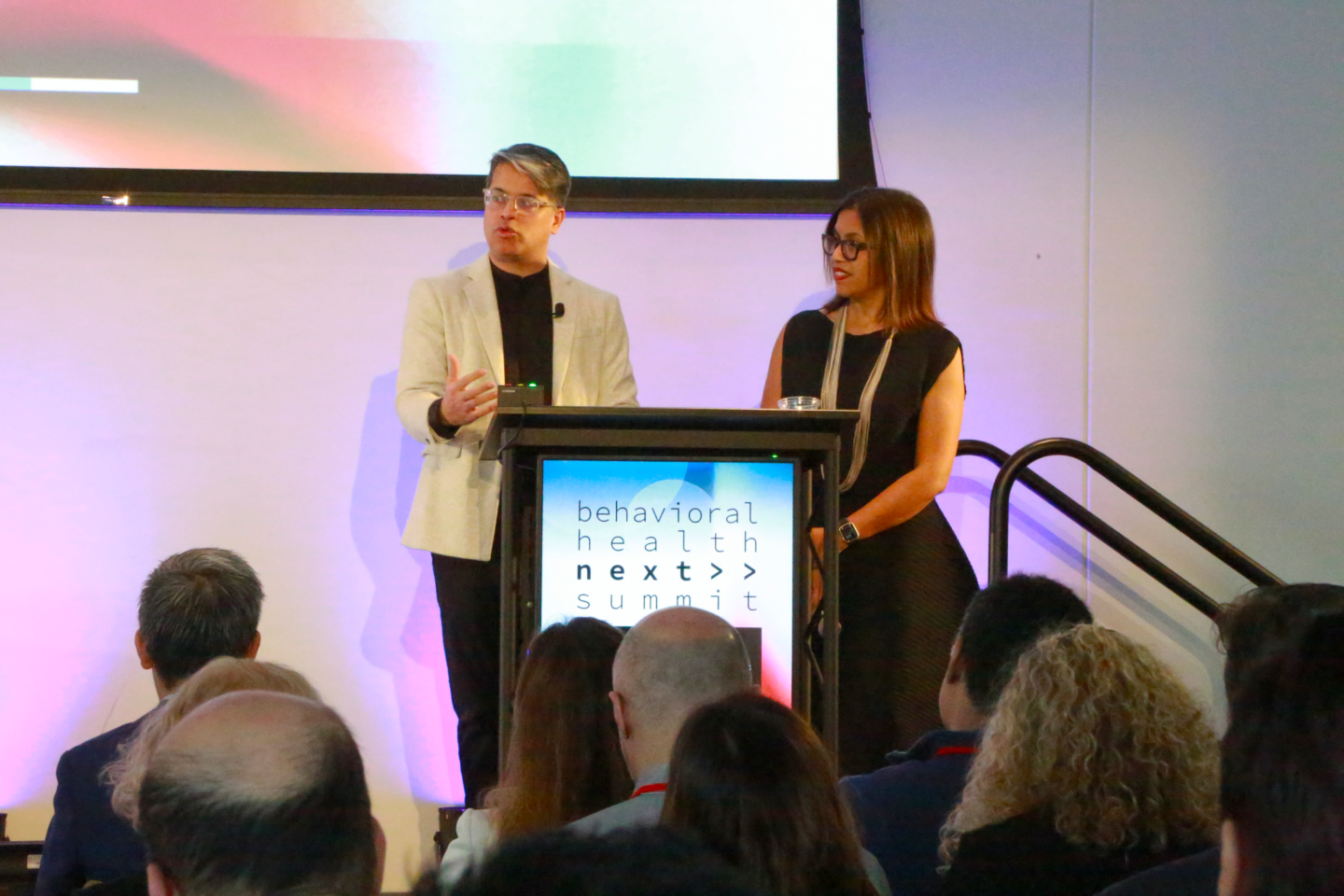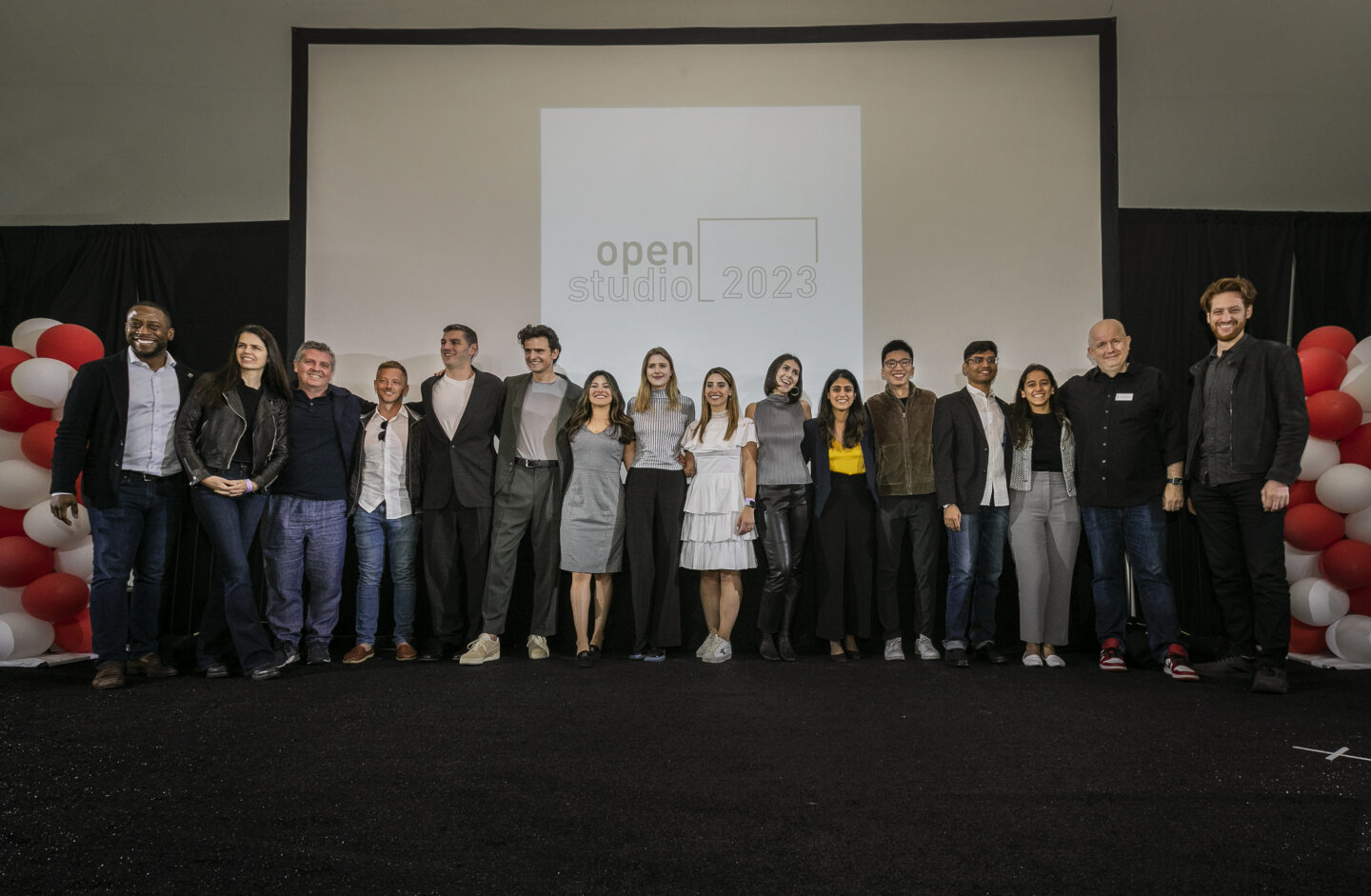AOL-Cornell Tech Connected Experiences Lab Pioneers Immersive Recommendation Technology
Categories
HCI, Industry Collaborations, Innovation, Jacobs Institute, Press Room, Research
The Jacobs Technion-Cornell Institute at Cornell Tech and AOL today announced a research technology called “Immersive Recommendations,” a concept where a user opts in to a tool that translates personal digital traces from one platform into content recommendations in another. The new technique was developed by Cornell Tech researchers to address “the cold-start problem” — how to engage users with relevant content when they first start using a platform. As an example, could a service like Netflix suggest better movies for a first-time user, if it tapped into their Twitter data? Could Meetup.com use your Medium posts to tailor events for you? Researchers will present the the new paper at the 25th International World Wide Web Conference in Montreal, Canada.
The Immersive Recommendations technology is the first to emerge from the Connected Experiences Lab, an endeavor of the Jacobs Technion-Cornell Institute at Cornell Tech in collaboration with AOL.
Traditional recommendation systems are reaching diminishing returns and do not address the cold start problem. At the same time, content consumption is constantly on the rise. The Immersive Recommendations algorithm builds individual user preference profiles on their behalf — with the user’s authorization — based on their multi-channel online activities. The user-centric model is then leveraged to tailor online services from events to travel and restaurants. This method is likely to benefit not only users, but also upstart and local services that do not already have rich, detailed information about user activity.
“People’s digital traces provide a wealth of information about preferences and behavior. Users should be able to unlock their personal data for many purposes, including curating content based on their interests,” said Deborah Estrin, Professor of Computer Science at Cornell Tech.
“We’re excited to continue working with AOL on this effort through the Connected Experiences Lab, which is setting a new standard for how industry and academia can work together to advance and commercialize new research,” said Mor Naaman, Associate Professor of Information Science at the Jacobs Technion-Cornell Institute and Director of the Connected Experiences Lab. “The idea for this research came about when the team at Cornell Tech first brainstormed potential AOL-relevant research directions. In a short time, with support from AOL, we have implemented and built this technology, leading to AOL exploring use of these ideas in product.”
The researchers put together two demonstration systems: Newsfie, which recommends articles from Medium.com and Grouplink, which recommends meetups. From a large-scale offline evaluation and a smaller-scale user study, they found that immersive recommendations improved the recommendation performances by up to 57% and 42% for news and meetups respectively over the state-of-the-art approaches, and showed clear potential in helping users discover more diverse information.
The Immersive Recommendations technique also provides potential privacy benefits. The current implementation of the tool gives users the control over whether and which services they authorize to share and use their data. Moreover, the technique allows for a privacy-conscious summary of each user’s interests to be shared with a new service, rather than requiring divulging of detailed user traces the default as it is in most current recommender systems.
As part of the ongoing collaboration, AOL will continue to support the research through testing and use of opt-in data across its network, and is exploring integration of the Immersive Recommendations tool into a number of product groups. AOL, the parent company to content brands like The Huffington Post, TechCrunch, Engadget and MAKERS, has made large investments in distributing and engaging content and advertising across the internet, beginning with its 2014 acquisition of the content optimization and personalization company, Gravity. The company is looking to increase engagement with its content across all channels, including its owned and operated properties, as well as social and off-platform destinations of content consumption. Through its partnership with Cornell Tech and the Connective Experiences Lab, AOL plans to support research through testing and use of data across its network.
AOL is particularly interested in this research not only due to its large cross-platform O&O properties, but also from the increased focus on leveraging the mobile footprint they have with Verizon, the wireless telecommunications company that acquired AOL in June of 2015.
“Capturing signals across as many channels as possible leads to better targeting and syndication of content, especially in mobile settings,” said William Pence, AOL Chief Technology Officer. “We are interested in how these techniques can be applied to create more relevant and ‘immersive’ ad experiences, specifically in video and in VR.”
AOL also has plans to include quality scores for content and ads, and intends to use user-supplied explicit feedback, like that from this research, to tune recommendation algorithms.
The work is the result of an AOL-funded research initiative at Cornell Tech. The Jacobs Technion-Cornell Institute at Cornell Tech and AOL founded the Connected Experiences Lab which started operations in June 2015 to explore and create technologies at the forefront of the digital ecosystem – including analytical techniques that fuse diverse personal data streams into actionable insights; content personalization that works across delivery platforms; and connectivity tools that deepen and sustain engagement within families and communities. The lab is made up of faculty, postdocs, and PhD students from Cornell Tech, the Jacobs-Technion Cornell Institute, and the Technion, along with other collaborators.
Cornell Tech
Cornell Tech develops pioneering leaders and technologies for the digital age. Cornell Tech brings together faculty, business leaders, tech entrepreneurs, and students in a catalytic environment to produce visionary results grounded in significant needs that will reinvent the way we live in the digital age. Cornell Tech is home to the Jacobs Technion-Cornell Institute, which embodies the academic partnership of Cornell University and the Technion-Israel Institute of Technology.
Cornell Tech’s temporary campus has been up and running at Google’s Chelsea building since 2012, with a growing world-class faculty, and over 150 masters and Ph.D. students who collaborate extensively with tech-oriented companies and organizations and pursue their own start-ups. Construction is underway on Cornell Tech’s campus on Roosevelt Island, with a first phase due to open in 2017. When fully completed, the campus will include 2 million square feet of state-of- the-art buildings, over 2 acres of open space, and will be home to more than 2,000 graduate students and hundreds of faculty and staff.
About AOL Inc.
AOL is a media technology company with a mission to connect consumers and creators through open marketplaces. AOL uses data to disrupt content production, distribution and monetization. The company connects publishers with advertisers across its global, programmatic platforms, tapping into Microsoft inventory and original content brands like TechCrunch, The Huffington Post and MAKERS which reach over 500 million monthly global consumers. Within its mobile advertising network alone, AOL has a reach of roughly 800 million users. A subsidiary of Verizon, AOL is shaping the digital future.



